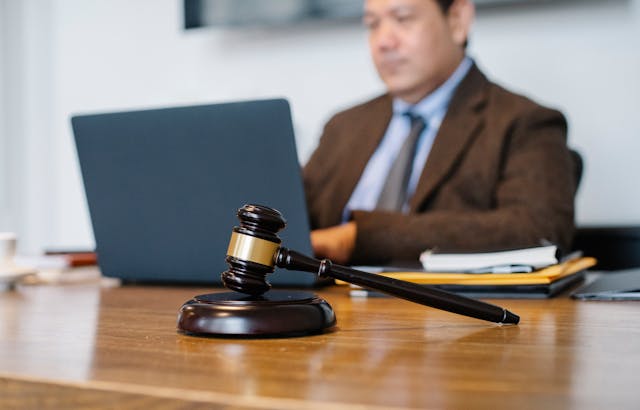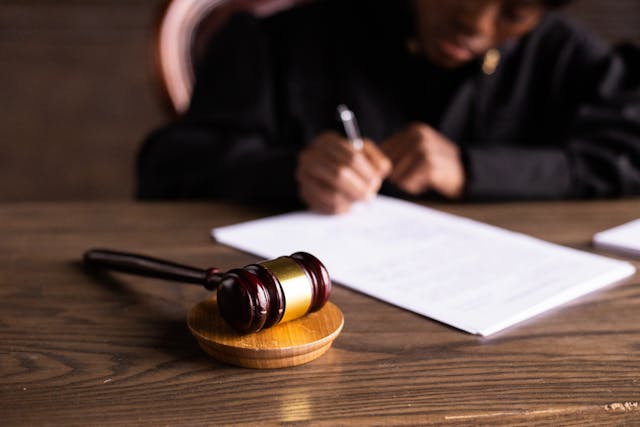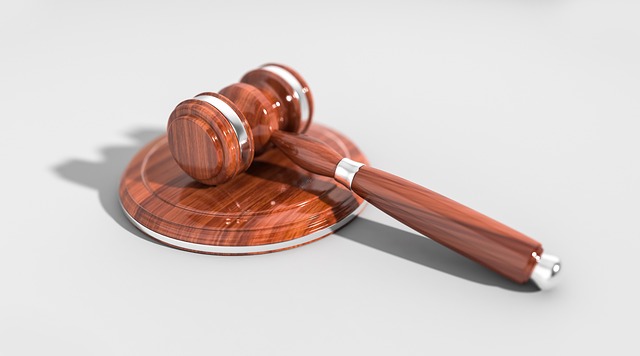It seems that every time we turn on the news or open a web browser, there’s another headline about data breaches or privacy violations. For those within the healthcare industry, understanding and navigating the legal complexities of patient data privacy is not just a priority but a daily responsibility. HIPAA, or the Health Insurance Portability and Accountability Act, is a federal law that sets the standard for healthcare data privacy and security in the United States. HIPAA complaints and violations have grown more common as the digital age expands, so professionals and patients alike are asking the same question: Can you sue for HIPAA violations?
Regardless of your role in healthcare or your personal information at stake, this is a pertinent question that merits a detailed exploration. In this comprehensive guide, we will untangle the intricacies of HIPAA violations and answer the question of whether legal action is a viable recourse for victims.
The Basics of HIPAA Violations
Before exploring the legal ramifications of a HIPAA violation, it is critical to understand what the term encompasses. A HIPAA violation is any action that contravenes the rules and regulations outlined in the Health Insurance Portability and Accountability Act of 1996. This includes unauthorized access to a patient’s medical records, the use or disclosure of personal health information (PHI) without patient consent, and the failure to implement adequate security measures to protect health information.
The penalties for these violations can range from corrective action plans to significant fines and, in extreme cases, imprisonment. The penalties are tiered, and the fines can range from $100 to $50,000 per violation (or per record), with a maximum penalty of $1.5 million per year.
The Role of HIPAA in Protecting Patient Privacy
HIPAA is designed to protect the privacy and security of individuals’ health information while at the same time allowing the flow of health information needed to provide and promote high-quality health care and to protect the public’s health and well-being. The Privacy Rule addresses the use and disclosure of individuals’ health information (known as “protected health information”) by organizations subject to the Rule.
Organizations that are subject to HIPAA, and must therefore safeguard patient information, include health plans, health care clearinghouses, and certain health care providers. Violations can be committed by employees of these organizations or by the companies themselves.
Understanding Your Legal Recourse for HIPAA Violations

Appropriateness of a HIPAA Lawsuit
Patients might be surprised to learn that the HIPAA law itself does not provide for a private cause of action. This means that an individual cannot file a civil lawsuit against a health care provider, plan, or clearinghouse for a HIPAA violation. However, there are exceptions that can sometimes lead to civil and even criminal penalties indirectly related to HIPAA violations.
State Laws and HIPAA Enforcement
State laws can often play a significant role in enforcing HIPAA regulations. Some states have created private rights of action for individuals whose health information is improperly disclosed. This means that, in certain circumstances, patients can sue healthcare entities for the improper release of their health records under state privacy laws that are often associated with or similar to HIPAA.
The Role of the Office for Civil Rights (OCR)
The OCR is the federal organization responsible for enforcing HIPAA, and it does so by investigating complaints and applying administrative and criminal penalties when appropriate. While patients cannot sue under HIPAA itself, an actual HIPAA violation can serve as evidence in other legal actions, often in conjunction with state laws regarding medical privacy and patient rights.
Suing for HIPAA Violations: Legal Strategies and Considerations
Class Action Lawsuits
Sometimes, multiple individuals affected by the same breach may band together for a class-action lawsuit, which can be a powerful legal tool. This type of lawsuit combines the claims of a large number of people who suffered similar harm as a result of the defendant’s actions. Plaintiffs can seek monetary relief, equitable relief, and even punitive damages in some cases.
Case Precedents and Legal Activism
Legal precedent is important in understanding the outcomes of previous HIPAA violation cases. The law adapts and evolves based on these previous cases, making it critical for lawyers to thoroughly research and understand the current legal climate regarding HIPAA violations.
Settlements and Mediation
In some cases, health care providers or organizations accused of HIPAA violations may choose to settle outside of court through mediation or other alternative dispute resolution methods. Settlements can often result in faster resolution and are less costly than going to trial.
Legal Counsel and Case Evaluation
For individuals who believe they have a case for a HIPAA-related lawsuit, it is crucial to consult with an attorney who specializes in healthcare law and data privacy. An experienced attorney can provide a realistic evaluation of the strength of a potential case and guide clients through the complex process of filing a lawsuit.
Protecting Patient Rights and Privacy
Keeping Informed and Vigilant
Patients play a crucial role in protecting their own rights and privacy. Staying informed about HIPAA and related health privacy laws is the first step in understanding the legal protections available. Being vigilant about health records and any changes to a healthcare provider’s privacy policies can help individuals spot and address potential HIPAA violations more quickly.
Reporting Violations to the OCR
The OCR is the agency responsible for receiving and investigating complaints related to HIPAA violations. Individuals who believe their rights have been violated should promptly report the incident to the OCR for investigation.
Seeking Legal Counsel
For those who believe they may have a case for a HIPAA-related lawsuit, seeking legal counsel is an important next step. An attorney can help determine the best course of action and provide guidance on how to seek legal redress for the violation.
Five Essential Recommendations for Pursuing HIPAA Violation Claims
- Document Everything: Keep comprehensive records of any communications, notices, or incidents related to the suspected HIPAA violation. Detailed documentation can serve as critical evidence in building your case.
- Understand the Scope: Fully grasp which aspects of your situation may constitute a HIPAA violation. Being well-versed in HIPAA guidelines can help you clearly articulate your grievances and understand the legal grounds of your claim.
- Report to the Right Authorities: Before pursuing legal action, report the violation to the Office for Civil Rights (OCR) or the appropriate state agency. This step is not only critical but in some cases, might lead to a resolution without the need for litigation.
- Consult with a Specialized Attorney: Given the complexity of HIPAA laws and the nuances of legal proceedings, consulting with an attorney who specializes in healthcare law and data privacy is paramount. They can offer a professional evaluation of your case’s viability and guide you through the legal process.
- Evaluate the Impact: Consider the emotional, financial, and privacy impacts the violation has had on you or your loved ones. Understanding and being able to articulate these impacts can be crucial in a legal setting, whether you are negotiating a settlement or preparing for a trial.
Conclusion: HIPAA Violations and the Path to Recourse
HIPAA violations can have serious consequences for individuals and organizations alike. While HIPAA itself does not provide for private lawsuits, there are legal strategies and avenues of recourse available to those affected by a violation. Patients should be aware of their rights and take action to protect their health information. Healthcare professionals must also remain diligent in upholding patient confidentiality and security.
Remember that the information presented in this article is for educational purposes only and should not be construed as legal advice. Laws regarding HIPAA and patient privacy can vary greatly depending on your location and specific circumstances. If you believe that you have a HIPAA violation on your hands and want to explore legal options, consult with a lawyer who specializes in this area of law. With proper legal guidance, individuals may have access to redress and ensure that healthcare entities are held accountable for breaches in patient privacy.
In conclusion, though the path to legal recourse for HIPAA violations may be complex, it is an avenue that might provide justice for those whose privacy has been infringed. By understanding the intricacies of the law and seeking appropriate legal counsel, individuals and organizations alike can work towards a healthcare system that respects and safeguards patient privacy to the fullest extent.



